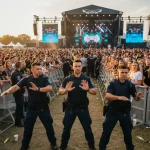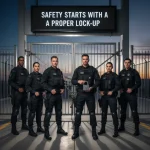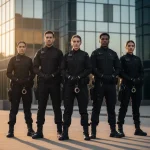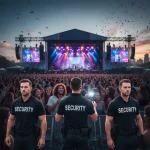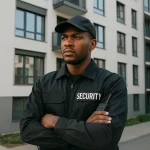Key Takeaways
- The ideal security-to-guest ratio typically ranges from 1:50 to 1:100, depending on your event type and risk level.
- Venue layout, event duration, and guest demographics significantly impact your security staffing requirements.
- Corporate events, concerts, and private parties each demand different security approaches and guard counts.
- Professional event security services can conduct risk assessments to determine the exact staffing needs.
- Proper planning and communication with security teams prevent both over-staffing costs and dangerous under-staffing situations.
Planning an event involves juggling countless details, but one question often leaves organizers scratching their heads: exactly how many security personnel do you need? Get this wrong, and you’re either wasting budget on unnecessary guards or, worse, leaving your guests vulnerable. Let’s break down the science and strategy behind proper event security staffing.
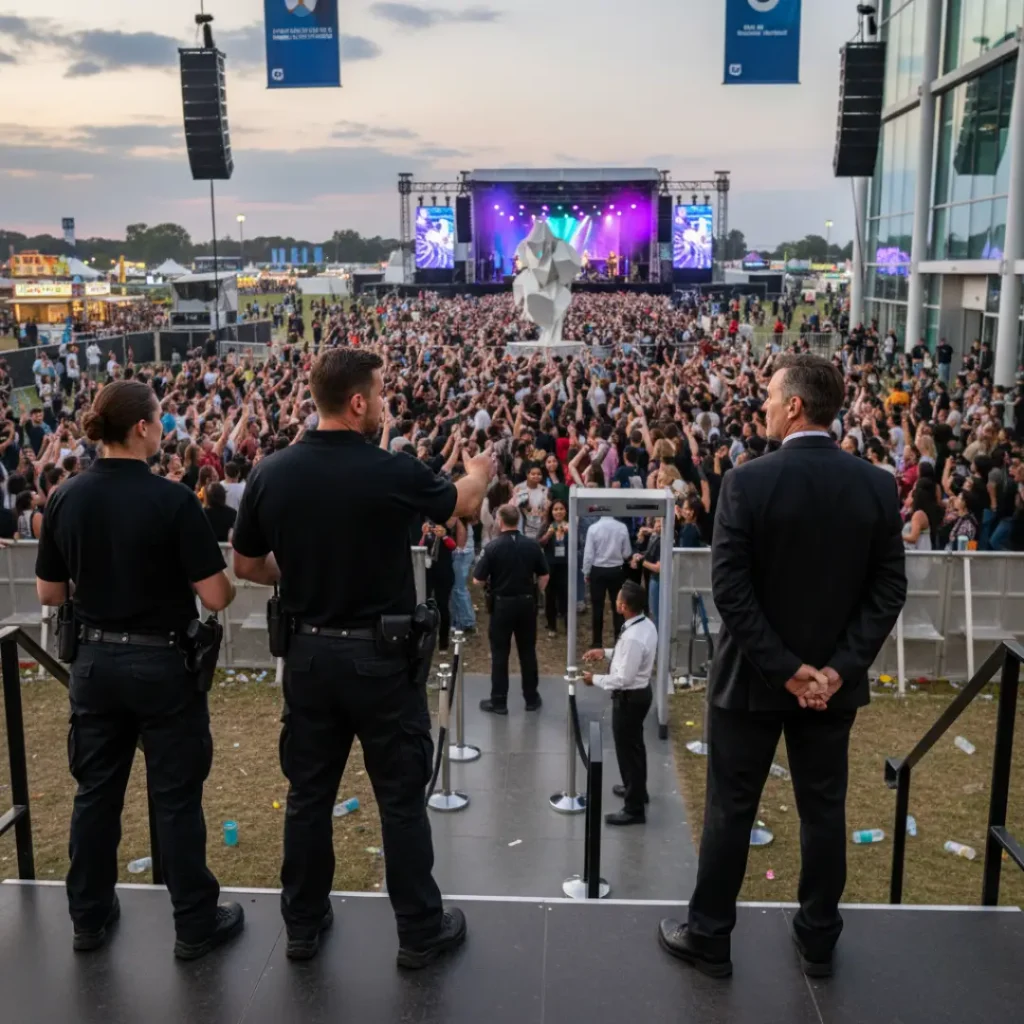

Understanding the Basic Security Formula
There’s no one-size-fits-all answer, but industry experts have developed practical guidelines. For most standard events, the baseline ratio sits at one security guard for every 50 to 100 guests. However, this number shifts dramatically based on several critical factors that we’ll explore.
A corporate conference with 500 seated attendees functions perfectly with 5-7 guards, while a music festival with the exact headcount requires 15-20 security professionals. The difference? Risk factors, crowd behavior, and event dynamics.
Key Factors That Determine Your Security Needs
Event Type and Atmosphere
Different events attract different crowd behaviors. A formal gala with seated dinner service demands minimal security presence—perhaps one event security guard at entrances and a few roaming the venue. Compare this to a high-energy concert where alcohol is freely available and the crowd surges toward the stage. These situations require robust security teams stationed at multiple strategic points.
Weddings typically need 2-4 guards for guest management and gift protection. Corporate product launches may require 6-10 days, depending on the number of VIP attendees and the value of the product being launched. Music festivals and sporting events often require one guard per 25-50 attendees due to heightened risk factors.
Venue Characteristics
Your venue’s physical layout has a significant impact on staffing requirements. Multiple entrances and exits? You’ll need guards at each access point. Large outdoor spaces with limited sightlines require more roaming personnel than compact indoor venues with clear visibility.
Consider a sprawling outdoor event space versus a single-floor banquet hall. The outdoor venue needs perimeter security, parking lot monitoring, and multiple patrol routes. Indoor venues concentrate security efforts more efficiently, reducing overall staffing needs.
Guest Demographics and Behavior Patterns
Understanding your audience is crucial. Events serving alcohol automatically increase security requirements. Youth-oriented events, especially those that attract teenagers and young adults, typically require a more enhanced security presence compared to professional networking events attended by business executives.
High-profile guests or celebrities attending your event? Triple your baseline security estimate. VIP protection, crowd control around notable attendees, and media management all demand additional personnel.
Duration and Time of Day
Evening and late-night events require more security than daytime gatherings. As events extend beyond four hours, factor in additional guards for shift coverage—tired security personnel are ineffective.
Weekend events, particularly those that run past midnight, require a more substantial security presence than Tuesday afternoon conferences. Fatigue, alcohol consumption, and changing crowd dynamics as events progress all contribute to increased security requirements.
Real-World Security Calculations
Let’s walk through practical scenarios to illustrate proper staffing:
Scenario 1: Corporate Seminar (200 attendees, daytime, single entrance)
- Base requirement: 2-4 guards
- Add 1 for registration desk monitoring
- Add 1 for parking/perimeter if needed
- Total: 3-6 guards
Scenario 2: Wedding Reception (150 guests, evening)
- Base requirement: 2-3 guards
- Add 1 for gift table security
- Add 1 for parking lot monitoring
- Total: 4-5 guards
Scenario 3: Music Festival (2,000 attendees, all-day outdoor event)
- Base requirement: 40 guards (1:50 ratio due to high risk)
- Add 10 for stage/backstage security
- Add 5 for VIP area management
- Add 5 for medical/emergency response support
- Total: 60+ guards
Why Professional Event Security Services Matter?


Attempting to calculate security needs without expertise often leads to costly mistakes. Professional event security services bring invaluable experience from thousands of previous events. They conduct comprehensive risk assessments, identifying vulnerabilities you might miss.
When searching for event security in Los Angeles, San Fernando, Woodland Hills, Encino, Glendale, and other areas of California, look for companies that offer pre-event consultations. These assessments should cover threat analysis, crowd management strategies, emergency evacuation plans, and communication protocols.
Quality event security guard training makes the difference between reactive chaos and proactive safety management. Trained professionals de-escalate conflicts before they explode, identify suspicious behavior early, and coordinate seamlessly with local law enforcement when necessary.
Common Security Staffing Mistakes to Avoid
- Under-staffing to save money is the most dangerous error. One incident requiring emergency response can quickly overwhelm an understaffed security team, leaving other areas vulnerable.
- Ignoring hidden security needs, such as backstage areas, loading docks, cash handling zones, and equipment storage, creates blind spots that opportunistic troublemakers can exploit.
- Failing to plan for contingencies leaves you scrambling when unexpected situations arise. Always budget for 10-20% additional security capacity beyond your baseline calculation.
Taking Action: Your Next Steps
Planning Timeline
- Begin planning your event security at least three to six weeks before your event date
- Contact multiple event security companies for quotes and risk assessments
- Don’t automatically choose the cheapest option
- Experience and training matter more than saving a few dollars per hour
Communication with Security Providers
- Clearly communicate your event’s unique characteristics, including:
- Expected attendance
- Venue layout
- Alcohol service
- VIP guests
- Any special concerns
- The more information you provide, the more accurate your security staffing recommendations will be
The Value of Proper Security
- Proper security isn’t just about preventing problems
- It’s about creating an environment where your guests feel secure enough to enjoy your event fully
- That peace of mind is priceless
Ready to ensure your next event runs smoothly and safely? Contact American Secure Company for professional event security services today for a customized risk assessment and staffing recommendation. Don’t leave safety to chance—invest in proper protection and give yourself one less thing to worry about on event day.
FAQ
How much does it cost to hire security guards for events?
Event security costs typically range from $25 to $100 per hour per guard, depending on location, experience level, and event complexity. Specialized security for high-risk events or VIP protection typically incurs higher costs. Most companies require minimum booking hours (usually 4-8 hours) and may charge extra for last-minute requests. Urban areas, such as Los Angeles, San Fernando, Glendale, Encino, Woodland Hills etc. generally have higher rates than smaller cities.
Can I reduce security costs by hiring fewer guards for longer shifts?
This approach is risky and often counterproductive. Fatigued security personnel make poor decisions and miss important details. Industry standards recommend a maximum of 8 to 10 hours of shifts for optimal performance. It’s safer and more effective to properly staff your event with alert, fresh guards rather than overwork a smaller team. Quality security services will advise against this cost-cutting measure.
What’s the difference between security guards and event staff for crowd management?
Security guards receive specialized training in threat assessment, conflict de-escalation, emergency response, and sometimes physical intervention. They have legal authority and insurance coverage for security functions. Event staff can guide guests and answer questions, but cannot handle security situations, remove problematic attendees, or respond to emergencies effectively. Never substitute untrained volunteers for professional security.
Do outdoor events always need more security than indoor venues?
Generally yes, but not always. Outdoor events typically require more security due to larger perimeters, multiple access points, parking areas, and reduced environmental control. However, a small outdoor garden party might need less security than a packed indoor nightclub. The determining factors are attendee count, event nature, alcohol service, and specific venue vulnerabilities rather than simply indoor versus outdoor.
Should I hire armed or unarmed security guards for my event?
Most events require only unarmed security professionals trained in conflict resolution and crowd management. Armed security is typically necessary only for high-risk events, those involving significant cash handling, events with controversial elements likely to attract protesters, or gatherings with high-profile individuals facing credible threats. Consult with professional security services and, if necessary, local law enforcement to determine whether armed security is suitable for your specific situation.

